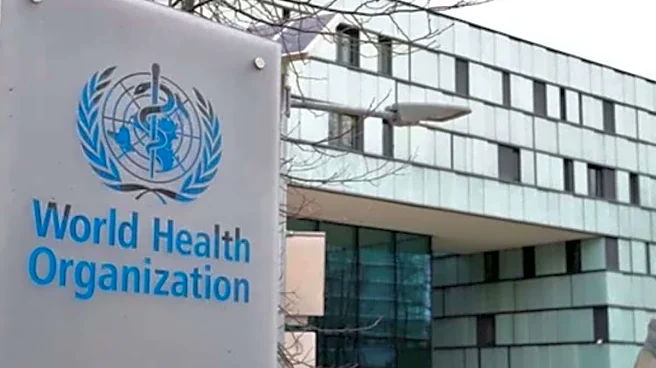The World Health Organization (WHO) on Wednesday evening confirmed to News18 that it has received official communication from India’s drug regulator, the Central Drugs Standard Control Organisation (CDSCO),
confirming the detection of toxic Diethylene Glycol (DEG) contamination in at least three oral syrup medicines.
According to an emailed response from the agency received by News18, “On 8 October 2025, WHO received confirmation from CDSCO that Diethylene Glycol (DEG) had been detected in at least three oral syrup medicines.”
These medicines, it said, were among those consumed by children in the reported cluster of cases. “CDSCO informed WHO that the above products have been recalled and that the identified manufacturers have been ordered to stop production of all medical products,” said the agency.
Updated response
This is an updated response from WHO, which had earlier confirmed to News18 that it had contacted the CDSCO for clarification regarding the incidents but had not received a reply. Now, the UN health organisation has received an official response from Indian authorities and accordingly updated its emailed response.
According to the data shared by WHO in an email, Sresan Pharma’s Coldrif contamination stood at 48.6% of DEG, whereas Rednex Pharma’s Respifresh TR’s contamination stood at 1.342% DEG. The contamination of 0.616% DEG was found in Shape Pharma’s Relife. The permissible level stands at just 0.1%.
‘Risk of contaminated products being exported’
In the updated response, the WHO said that the Indian regulatory agency, CDSCO, has clarified that “none of the products” were exported from India. However, the WHO said it has not received any official information as to the source of the DEG contamination or if contaminated pharmaceutical material has been identified.
On October 1, 2025, the WHO contacted India’s apex drug regulatory authority, the Central Drugs Standard Control Organisation (CDSCO), for clarification linked to the deaths of multiple children. “WHO communicated that it stood ready to support national authorities in investigating and responding to these tragic events,” said the agency.
WHO, in its response to News18, has expressed “deep concern” over “these” developments. It added a list of three main concerns, which includes “the potential risk of contaminated products being exported to other countries, particularly via unregulated channels”.
Secondly, it pointed out “the regulatory gap in DEG/EG screening for domestically marketed medicines in India”, and thirdly, “identifying the source of the contamination and identifying and removing any contaminated pharmaceutical material which may be in circulation”.
“WHO recognises the gravity of these incidents and stands ready to support national authorities in investigating and responding to these tragic events. WHO remains committed to supporting India in safeguarding public health and ensuring the safety of medical products,” it said.
The UN agency further said that it is closely monitoring recent media reports from India regarding clusters of paediatric illnesses and deaths in the states of Madhya Pradesh and Rajasthan. “These reports, which have emerged during the week of 29 September, describe symptoms consistent with acute renal failure and acute encephalitis syndrome, with suspected links to the use of oral syrup medicines,” it said. “WHO is deeply saddened by the reported fatalities and extends its sincere condolences to the affected families and communities.”




/images/ppid_59c68470-image-177102753183257032.webp)


/images/ppid_a911dc6a-image-17710264327998831.webp)

/images/ppid_a911dc6a-image-177102646607765106.webp)




